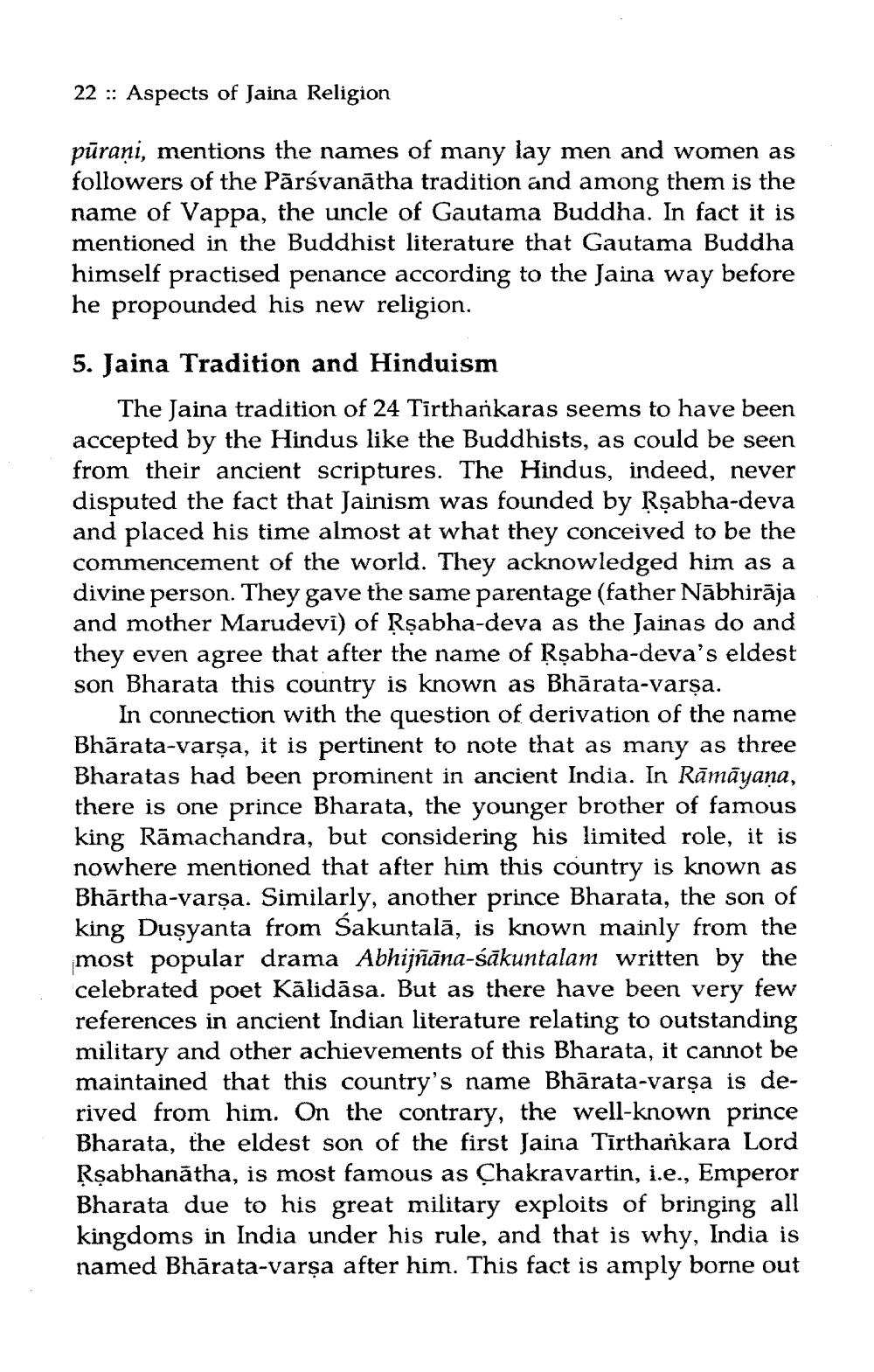________________
22 :: Aspects of Jaina Religion
pūraņi, mentions the names of many lay men and women as followers of the Pārsvanātha tradition and among them is the name of Vappa, the uncle of Gautama Buddha. In fact it is mentioned in the Buddhist literature that Gautama Buddha himself practised penance according to the Jaina way before he propounded his new religion.
5. Jaina Tradition and Hinduism
The Jaina tradition of 24 Tīrtharkaras seems to have been accepted by the Hindus like the Buddhists, as could be seen from their ancient scriptures. The Hindus, indeed, never disputed the fact that Jainism was founded by Rşabha-deva and placed his time almost at what they conceived to be the commencement of the world. They acknowledged him as a divine person. They gave the same parentage (father Nābhirāja and mother Marudevī) of Rşabha-deva as the Jainas do and they even agree that after the name of Rşabha-deva's eldest son Bharata this country is known as Bhārata-varsa. son Bharata this country is
In connection with the question of derivation of the name Bhārata-varsa, it is pertinent to note that as many as three Bharatas had been prominent in ancient India. In Rāmāyana, there is one prince Bharata, the younger brother of famous king Rāmachandra, but considering his limited role, it is nowhere mentioned that after him this country is known as Bhārtha-varşa. Similarly, another prince Bharata, the son of king Duşyanta from Sakuntalā, is known mainly from the most popular drama Abhijñāna-sākuntalam written by the celebrated poet Kālidāsa. But as there have been very few references in ancient Indian literature relating to outstanding military and other achievements of this Bharata, it cannot be maintained that this country's name Bhārata-varsa is derived from him. On the contrary, the well-known prince Bharata, the eldest son of the first Jaina Tīrthankara Lord Rşabhanātha, is most famous as Chakravartin, i.e., Emperor Bharata due to his great military exploits of bringing all kingdoms in India under his rule, and that is why, India is named Bhārata-varşa after him. This fact is amply borne out




